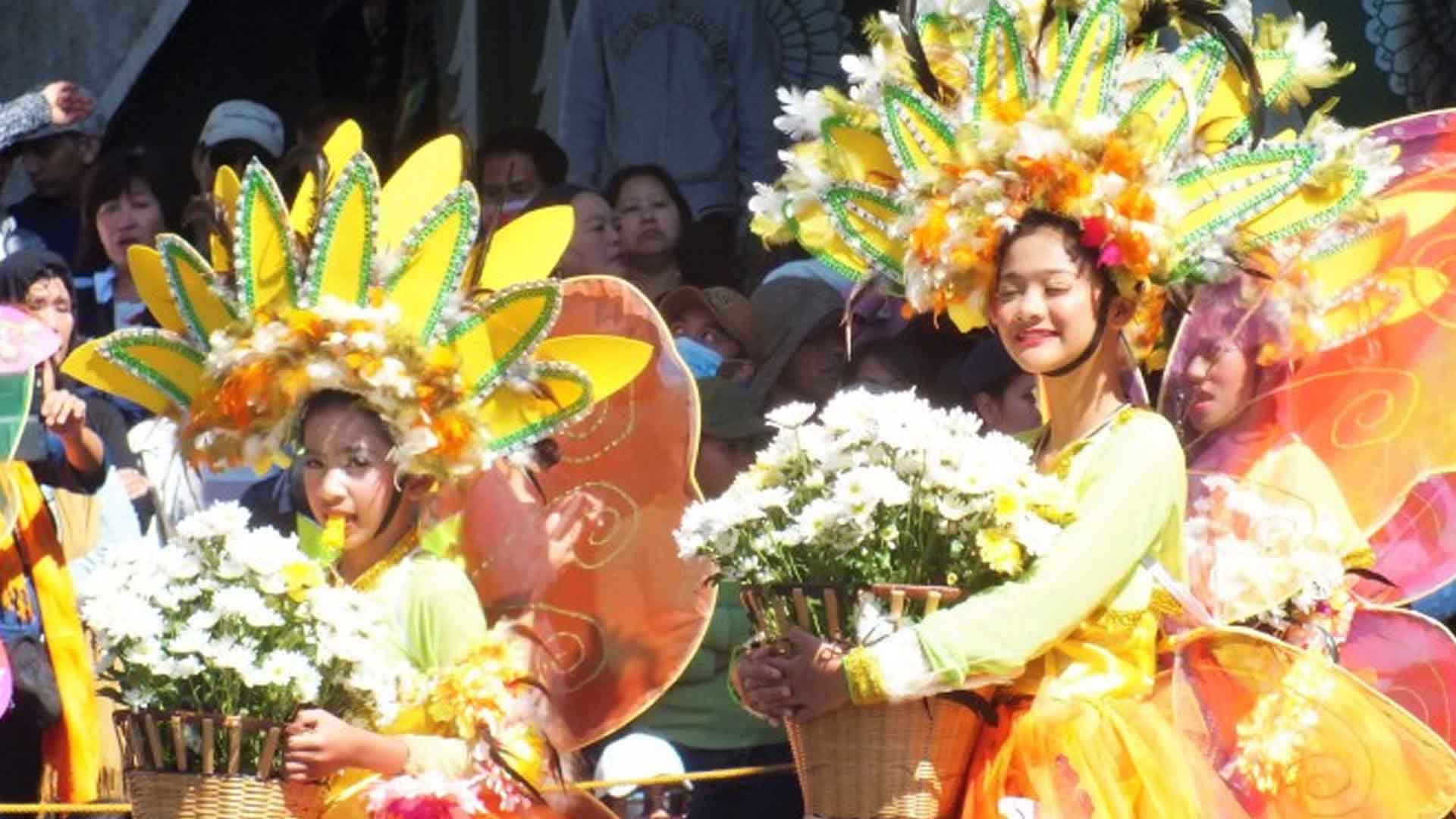The city will see another downgraded Panagbenga Festival as the country continues to grapple with the coronavirus pandemic, Mayor Benjamin Magalong said Thursday.
“Definitely, there would be a Panagbenga 2022. Napag-usapan namin (We have discussed it) with the Flower Festival Foundation that Panagbenga would be a low-key celebration due to the threat of the Omicron,” Magalong said in a phone interview.
He said the usual crowd-drawing events were scrapped to prevent the further spread of coronavirus disease 2019 (Covid-19).
At the onset of the pandemic in 2020, the city government held a traditional ritual during the festival opening day on February 1 but canceled the usual opening parade that follows it.
The festival starts in February and closes on the second week of March. This happens on a Sunday, a week after the two grand parades – the flower float parade and the street dancing parade that brings in thousands of local and international tourists.
“There will be no street and float parades and the city will be concentrating on the remaining activities such as the landscaping events to continue with the tradition of the Baguio Flower Festival,” the mayor said.
He, however, said the fate of the festival will depend on the Covid-19 situation in the city — either the Panagbenga would push through in February or will be delayed in March but with fewer crowd-drawing activities as a precaution.
Since its start in 1996, the festival has attracted international attention with tourists flocking to the summer capital every February.
Panagbenga, a Kankanaey word that means blooming, was conceptualized as a community recovery activity for Baguio several after the city was devastated and brought to rubbles due to the major earthquake in 1990.
It was organized as a community activity, with residents coming together to help rebuild Baguio which developed as a major crowd-drawing event not just of the city, but the country. (PNA)








